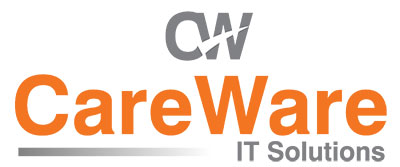5 things you must know in order to be computer literate
There is a large majority of people who actively use computers but are coasting along with just the bear minimum knowledge in the field of IT. In reality, there are a lot more skills to be learnt. This article will address the individual skills that will make it easier and quicker for you to navigate as well as being able to carry out various commands within an assortment of applications.
It is tempting to believe that you are a computer expert simply because you have used one for a long time but this couldn’t be further from the truth. Check out the 5 skills I have described below and you’ll become IT savvy in no time. If you’re already aware how to carry out these then you should be assisting others in reaching the same level of understanding.
1. Search Engines
There is more to using a search engine than just typing in an address such as: Google or Bing then entering a few key phrases. While this method works, it’s not the most efficient way of pulling the best results. You should learn to use the advanced search feature and experiment with the keywords that you use as this has an impact on the amount of results you receive and its relevance to the search criteria. You should never use common words like ‘the’ or ‘a’ as these are typically ignored by the search browser – just stick to the main terms of your search. Punctuation is disregarded as well. Wherever possible you should take advantage of Google’s Auto-complete feature as it will usually pull up results that closely match what you are trying to find.
2. Scanning For Viruses and Malware
This is without a doubt, one of the most critical skills in IT. Malicious software is always on the rise so users need to be aware of how they can prevent it from breaching their computer’s defense and how they remove it if the worst case scenario actually occurs. Despite the fact that most antivirus/malware software is automated nowadays, it is still wise to be aware of how you can spot a common variant just in case you have to manually remove it. There may also be occasions where the malicious file is able to bypass the scanner without being spotted. In which case, you would need to start the scan process yourself within the application that you have installed on your computer.
3. Word Processing
As one of the earliest uses for a computer, this should be second nature for everyone. In the modern day work environment, you can’t help but take advantage of its features. A lot of the program’s capabilities have since being merged with other applications such as: mail. It’s hard to claim computer literacy when you’re not able to perform a spell check, create a table or make a header/footer.
4. Basic Networking Diagnosis
Work hindrance is often caused by network related issues. While not everyone is expected to know how to program a Cisco router, you should be aware of how you can:
– Determine your IP address
– Confirm physical connectivity to the server
– Ensure that you have a logical connection to the network
– Investigate what path network traffic takes to get to its destination
– Translate from DNS names to IP addresses
5. How to connect the various components
This stands above everything else as the most significant process in IT. You can’t do a whole lot if you’re computer isn’t even running. Some people still struggle despite the fact that most cables are colour coded and will only fit a particular socket. You’re far from being computer literate if you require assistance to even plug it in.
Anything else?
It goes without saying that there are many more aspects that determine your computer competence level but this is just to sum up the hurdles that some users still need to cross before they can become more confident and knowledgeable in this field.


Comments are closed.